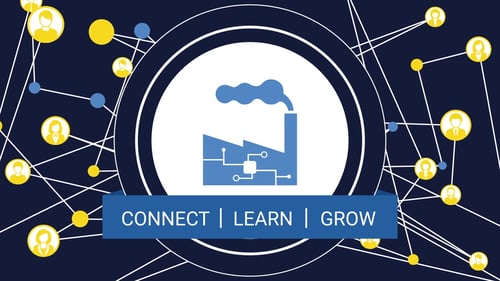Does it feel like your industry is being disrupted by competitors utilizing digital workflows and ecosystem-based business plans? If so, you’re far from alone. These “Industry 4.0’ technologies are widely seen as being the biggest disruptors in business today – after all, just look at how many companies now want to become the Uber of their industry.
Digital transformation is fully attainable for any business, and it’s easier to accomplish today than ever before. However, it absolutely cannot succeed without top-level support. Leadership within the business needs to be truly committed to creating positive change. Here are five tips to help get you thinking.
1. Get your team invested!
Digital transformation may be a tech-focused change, but it’s not something that can be fobbed off on the tech guys. A changeover to ecosystem-based business practices will affect operations across your company, and that requires a firm hand which is consistently on the reins. People will be looking to you for guidance, and to answer critical high-level strategic questions about the direction the project will follow.
Likewise, enthusiasm within leadership will “trickle down” and inspire more reticent middle managers below to get with the program.
2. Be patient. Change is hard!
Implementing Industry 4.0 technology will not be fast, nor should it be. Because digital transformation will affect so many critical areas of a business, it can’t be handled rapidly. The best way to proceed is almost always in stages, gathering plenty of feedback throughout, and starting with smaller-scale test deployments before making any large-scale changes.
3. Maintain a willingness to learn
The technologies underpinning Industry 4.0 initiatives are consistently evolving, and everyone involved in the project will need to learn them – then keep re-learning as new ideas appear. There will be a need for substantial mental investment, as well as operational investment.
This will also come with a need to unlearn old business practices. Industry 4.0 calls for business plans which are significantly different than those from last century – but bring big rewards when implemented.
4. Appreciate experimentation
There will be a lot of X-factors when you start implementing digital processes in your operation – and the solutions will require creativity and experimentation. This can even cover very basic matters. For example, an industrial manufacturer wants to implement smart sensors on a set of pipes, so an AI can monitor proper fluid pressure. But what actually is that proper pressure, when in use? The engineers might not have that data on hand and would then need to briefly disrupt operations to conduct tests.
These will be minor road bumps on a path towards much better long-term payoffs.
5. Strive to better understand your customers
Data-driven business processes are, to a large extent, customer-driven. The most successful digital transformations are those which keep questions like “What do our customers really want?” at the forefront of their strategy. So, the better a leader understands their customer base and audience, the better-prepared they will be to develop actionable long-term plans with concrete goals.

